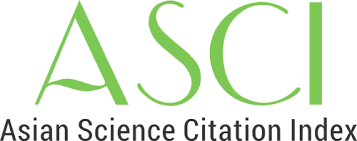Publication Ethics
Publication Ethics
The editor(s) and publisher of this Journal believe that there are fundamental principles underlying scholarly or professional publishing. While this may not amount to a formal "code of conduct", these fundamental principles with respect to the authors' paper are that the paper should:
- be the authors' own original work, which has not been previously published elsewhere
- reflect the authors' own research and analysis and do so in a truthful and complete manner,
- properly credit the meaningful contributions of co-authors and co-researchers,
- not be submitted to more than one journal for consideration (ensuring it is not under redundant simultaneous peer review), and
- be appropriately placed in the context of prior and existing research.
For a full description of the standards of expected ethical behaviour by all parties involved in the publishing process (the author, the journal editor, the peer reviewer, the publisher and the society for society-owned or sponsored journals) please see: http://www.elsevier.com/editors/perk/1.-authorship-complaints/publishing-ethics.
Of equal importance are ethical guidelines dealing with research methods and research funding, including issues dealing with informed consent, research subject privacy rights, conflicts of interest, and sources of funding.
While it may not be possible to draft a "code" that applies adequately to all instances and circumstances, we believe it useful to outline our expectations of authors and procedures that the Journal will employ in the event of questions concerning author conduct. Relevant conflicts of interest should be disclosed (see http://www.elsevier.com/wps/find/authorshome.authors/conflictsofinterest).
I. Research Misconduct Policy of MJS
The purpose of this policy is to prevent any misconduct related to research conducted for the journals and to suggest the fundamental principles and structural procedures in relation to research integrity deliberation required to ensure research ethics.
II. The range of research misconduct
Research misconduct suggested in this policy pertains to fraud and refers to data fabrication, falsification, plagiarism, and improper authorship.
- Fabrication refers to any act involving the creation of false information about non-existing data or findings.
- Falsification refers to artificial manipulation of the research materials/equipment/process or randomly modification/deletion of data resulting in distorted research contents or research results.
- Plagiarism refers to acts of pirating others’ ideas, research contents, and research results without justifiable approvals or quotations.
- Improper authorship refers to cases where the person who has contributed to research contents or research results is scientifically and technically unqualified as an author or where someone who has not contributed to the research contents or research results scientifically and technically but has been listed as an author merely to express gratitude or courtesy.
- Intentional acts to disturb a fraud investigation about themselves or others or the acts which can be harmful to informants.
- Unfair evaluation regarding research of others or a disclosure or pirating of research ideas or research results acquired during the evaluation process.
- Severely aberrant acts that cannot be accepted in the community of the field of scientific and technology.
Beside that, the research must follow ethical on Hazards and Human or Animal Subjects, Disclosure and Conflicts of Interest, and Fundamental errors in published works
III. How does the journal address misconduct in the publishing process?
Editors and publishers have an ethical obligation to:
- Support the quality and ethics of the review process (pre-publication: weed out; prevent)
- Ensure the correctness of the published literature (post-publication: correct; communicate)
- Educate (prevent)
Editors/journals have an ethical obligation to respond to and address ethical allegations that may arise about published papers or papers in review. Systems and procedures are in place for investigating and addressing situations of misconduct, including cooperation with investigations from institutions or funding bodies.
IV. How do editors address an allegation of publication misconduct?
- The first course of action is usually to contact and discuss the issue with the authors (and reviewers).
- The author’s university, institution, funding agency, and/or government agencies will be notified.
- Investigation has typically been seen as the responsibility of research institutions and funding agencies; it is NOT usually the journal’s domain.
V. Possible sanctions
If there is evidence of misconduct/fraud:
- Prior to publication (during review): The manuscript can be withdrawn from review
- Post-publication (literature correction) The journal may publish Retraction, Note of Editorial Concern, Errata/Correction with the author or authors’ (some or all) signature or editorial of an appropriate statement about the situation. The paper can be “marked” in the literature/PubMed.
- Editors determine whether retract or correct after considering whether the case is fraud or an honest mistake. They consider the intent And then extent to which the data is incorrect/misleading
- Author may be banned from submitting to the journal.
- Editors may, in some cases, provide information for other editors/publishers.
- Editors may publish of an editorial in the journal to discuss the issue generally and raise awareness of the issue.
All the publishing ethics materials here were adopted from http://www.elsevier.com/ethics/toolkit









